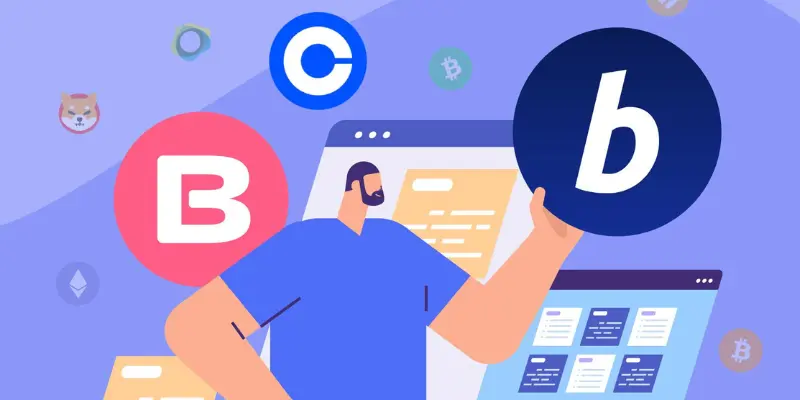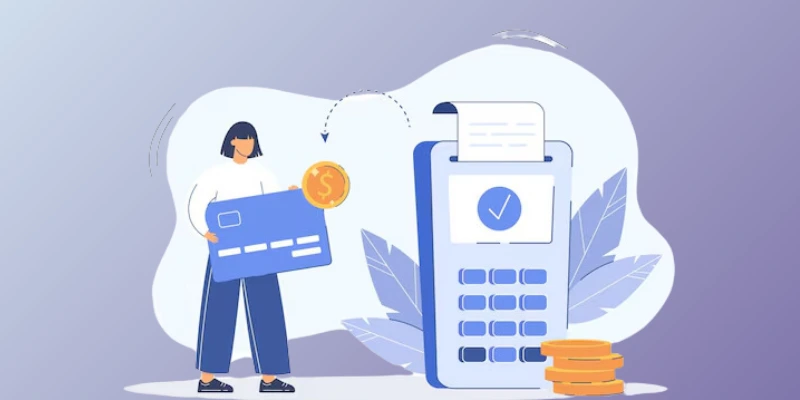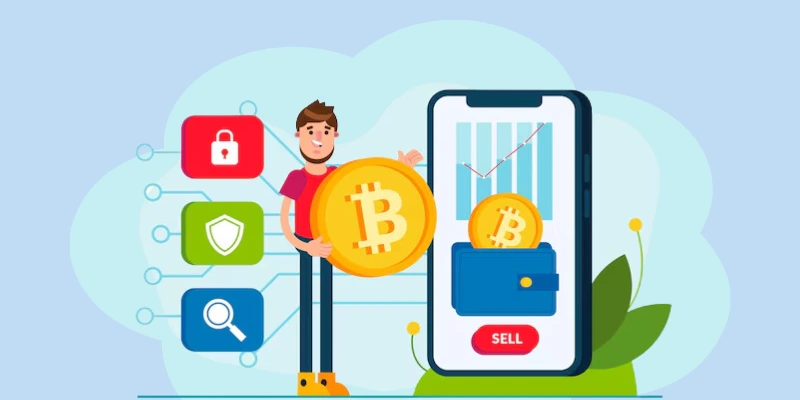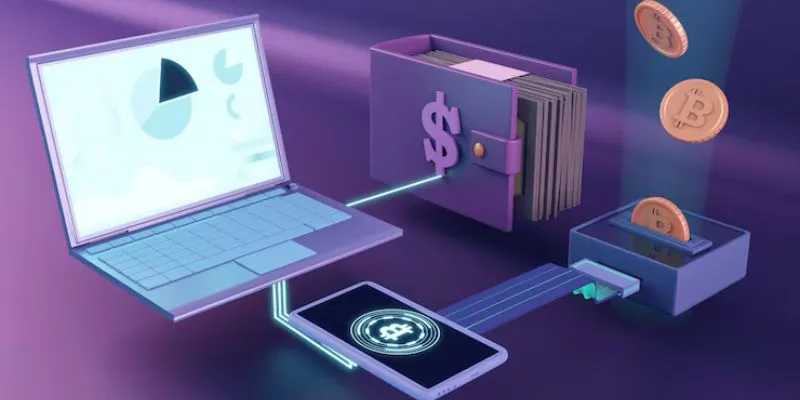Blockchain is becoming a transformative force in our contemporary business world, transforming various industries, including healthcare, retail, finance, entertainment, and supply chain management. It is slowly expanding in the world of digital payment, which is causing a dramatic shift away from traditional currencies towards cryptocurrency and assisting in the rapid growth of payment gateways that use crypto, such as BitPay.
Therefore, some of the most renowned brands, such as Starbucks and Gucci, accept cryptocurrency as a legitimate method of payment. In fact, Elon Musk once tweeted, "You can now buy a Tesla with Bitcoin." This dream has become a transformative reality and signals a significant shift in how we conduct online payment.
Business leaders frequently ask, "How much does it cost to develop a crypto payment gateway like BitPay?" The cost can range between $300,000 and $30,000. Along with the development costs associated with building the platform itself, ongoing security, usability, and nationality maintenance expenses must also be factored in. To obtain an accurate estimate, working with an expert Crypto Payment Gateway Development Company is vital.
What Are Crypto Payment Gateways?
Crypto payment gateways act as a middleman between e-commerce platforms and their customers, making it easier to conduct transactions using cryptocurrency, including Bitcoin, Ethereum, and many others. They handle the transformation of cryptocurrency into fiat currency and offer buyers the option to use virtual assets to price products and offers.
How Does a Crypto Payment Gateway Work?
Can you calculate the cost of developing a cryptocurrency payment gateway? The first step is to know how it works. This is an easy breakdown of how it works:
Customer Initiates Payment
During the checkout stage of an online store or platform, customers select the cryptocurrency they prefer to use as their mode of payment.
Payment Processing
The crypto payment gateway accepts the request for payment and secures the details of transactions. The information includes the client's account balance, the amount to be exchanged, and the information about the merchant.
Conversion to Fiat Currency
If the business prefers to receive payment in fiat currency, the payment processor converts the cryptocurrency to the preferred fiat currency at the current exchange rate.
Transaction Completion
The merchant will be notified via the crypto payment gateway if the transaction is successfully processed and converted. This means it is simpler for the merchant to meet the customers' orders following receipt of the money.
Settlement
The buyer can pay the transaction with fiat or cryptocurrencies, which can be transferred to your bank account. But, this will depend on the capability of the payment processor.
How Much does it Cost to Develop a Crypto Payment Gateway like BitPay?
The number of platforms offering crypto payments is limited. BitPay is among CoinPayments, CoinGates, BitcoinPay, and SpicePay, the leading payment platform that is enduring delight in the crypto-based ecosystem. As a result, growing small businesses and large enterprises have been investing rapidly in the development of crypto payment gateways such as BitPay to ensure the security of transactions.
When we talk about developing businesses, we often face the following question: How much will it cost you to create a crypto payment similar to BitPay? If you want answers for the BitPay app, the average Development Cost can vary from $30,000 to $3,00,000 or increase based on the level of complexity involved in the Project.
It is not just about building the platforms but also about cost-effective rates for making sure that the functionality of the application is current, secure, and attractive to users. Importantly, Hire a Blockchain development business that will help you navigate all the steps and finish the job within a budget so that you can increase your productivity quickly within the finance sector.
Factors Affecting the BitPay-like App Development Cost

Developing a crypto-payment service such as BitPay is a complex mix of elements that add to the development expense. Understanding these fundamental elements is vital for companies considering an investment. Here are some of the aspects that significantly impact the cost to develop a crypto payment gateway:
Platform Complexity
The platform's complexity and the number of features required to bring your idea to fruition are among the main factors that affect the cost of developing an app based on BitPay. A platform such as BitPay includes complex functions, such as transaction processing and instant updates updates.
Each element increases the complexity of the development process, requiring an equal amount of resources for financial purposes, time, and skilled workers. The more complicated the functionality and feature set, the greater the investment needed to ensure a successful development.
Location of Developers
The developer's geographic location will directly impact Web3 blockchain-based payment gateways and expenses. Hourly rates for app developers differ significantly based on geography. For instance, companies based in the US or UK are likely to charge more than organizations located in Asian or African areas.
Security Level
Establishing trust with the crypto-payment gateway requires strong security precautions. Implementing encryption standards, using multi-factor authentication, and conforming to regulatory requirements are crucial in determining the costs associated with payment gateway creation.
UI/UX Design
BitPay's unbeatable success is primarily due to its user-friendly interface, attractive layout, and responsiveness to mobile devices. While these elements contribute to a positive user experience, they can also impact the development costs. Thus, the price of developing a cryptocurrency payment platform such as BitPay will vary depending on the difficulty involved in the UI/UX.
Payment Processor Integration
As we said, BitPay accepts 16 cryptocurrencies that account for 70 percent of the crypto market capitalization. Compatibility with various cryptocurrencies demands seamless integration with multiple processing platforms. The integration of APIs, as well as the consideration of the speed at which transactions are processed, significantly influence the development process and its complexity and cost.
Legal and Compliance Costs
The development of a cryptocurrency payment platform such as BitPay is a requirement for compliance with regulatory frameworks, such as Anti-Money Laundering (AML) and know-your-customer (KYC). This requires the continuous efforts of experienced developers who can adhere to industry regulations while ensuring smooth transactions. It adds to the overall expense of Web3's crypto payments gateway technology.
Testing and Quality Assurance
In the above paragraph, we mentioned that a cryptocurrency payment processor such as BitPay usually has rigorous security and compliance standards. Thus, making sure you have the right tools for testing and programs is essential for ensuring the security, quality, and security of Web3 digital payment options. While these actions contribute to developing costs, they're essential for an efficient and secure platform.
Maintenance and Updates
Regular maintenance, which includes security fixes, bug fixes, and the introduction of new features, is essential to ensure the continuous operation and long-term viability of the crypto payment gateway. This continuous maintenance is an ongoing expense that contributes to the total development expense for the crypto payment gateway.
What's a Multi-Currency Crypto Payment Gateway?
The payment gateway program secures the cardholder's information at checkout and forwards it to the bank issuing it and the card network for acceptance and authorization.
A traditional payment gateway accepts payments in the buyer's local currency; however, if the vendor is located in another country, the payment must be converted to a foreign currency through an intermediary, which is a substantial cost for the merchant.
Multi-Currency Crypto Payment Gateways eliminate this expense by allowing the buyer to transact in a single currency while the seller transfers the funds to another.
Here's an example of the way you can use a Multi-Currency Crypto Payment Gateway operates in real-world terms:
-
Imagine you're an online retailer based in the US but with a global presence. A customer comes to your online shop and chooses to purchase an item. If your website has an integrated payment gateway that accepts multiple currencies, customers will be able to view the prices of your products in the currency they prefer.
-
The cardholder enters their details during checkout, and then your payment gateway collects the information and forwards it to the banks or processors.
-
After authorization, the money will be deducted from the user's savings account. Then, due to your multi-currency gateway, it is automatically adjusted and paid into your merchant account using the currency you prefer, thus avoiding expensive conversion costs.
What is the most suitable cryptocurrency payment processor for your company?
Companies have a variety of things to consider when selecting the best crypto payment gateway software. In this post, we'll outline the most important factors to consider when evaluating prospective providers.
Fees
Be aware of how payment processors earn their money. The majority of processors charge a fixed fee for each transaction and a percentage of the total value of the transaction. The percentage can range between 0.5 percent and 3.3 percent, contingent upon the method of payment, your provider, and the volume (most processors offer bulk discounts).
When making cryptocurrency-based payments, anticipate charges of 1.1%. If you make payments that involve converting between different currencies, the payment processors usually charge a markup of their exchange rates. This is usually an unintentional cost that is not disclosed and could affect the buyer upon completion of the purchase.
A payer is also required to pay network fees, which depend on the level of congestion in the blockchain network. For instance, in July 2023, a person who makes a transaction through the Bitcoin blockchain will be charged an average of US$1.3.15.
Settlement and processing times
The process of processing and settlement in cryptocurrency is fast. However, it can be hindered by the number of transactions processed on the blockchain at that moment. An online payment processor for crypto that uses several blockchains will reduce the time it takes to process. Certain providers will also ensure that a crypto transaction is completed before it is verified through the blockchain, giving the merchant a prompt reply.
If a business wishes to convert a cryptocurrency transaction into cash, it must change the currency and move the money across the rails of banking. Many factors affect the speed with which this transfer can occur, such as the speed at which it is possible to settle the transaction and the arrangement the payment processor is able to negotiate with liquidity and banking institutions.
Installation is simple
Alternatives to deployment using low-code, such as hosting payment pages, allow you to start working by partnering with a processor. They are generally quick to implement and have the advantage of being checked and tested so that the merchant can feel confident that their site is designed to convert payments.
Merchants who want greater control over their payment transactions, such as a customized payment experience, APIs, and developer documentation, are essential. If this is the case, the provider of crypto gateways will still be judged based on their ability and willingness to provide guidance and help.
Additionally, look into whether payment gateways are compatible with financial software and point-of-sale (POS) platforms.
Payer experience
Payments using cryptocurrency are developing, and some work remains to recreate the "one-click" payments that customers use in e-commerce, for instance. But some services are more beneficial than others.
Select an online payment service with proven hosted payment pages thoroughly developed and optimized for user satisfaction and conversion. For instance, they integrate it with the most popular cryptocurrency wallets or make picking the most popular cryptocurrency easier.
If you're creating an experience from scratch, you should look to a service that can help you create the highest-converting pay-per-click journey.
Customer support
It's easy to join the crypto-based payment platform. However, accessing the assistance you need for persistent payment issues is often more complex. Find a service that offers the best customer support staff, including a dedicated account manager and on-hand technical support teams whenever needed. They also have the operational hours you'll require.
Request them to share their onboarding experience —this is an excellent indicator of the level of support they will receive going forward.
Compliance
Regulations on cryptocurrency are constantly changing across the globe. It is necessary to choose an online payment processor that is on top of the latest regulations, has a strong department for risk and compliance, and is licensed by a country that is known as having strong oversight by the regulator (if they've passed the test in that area, they're likely to be able to provide risk and compliance control that you can count on).
The partner you choose to work with should implement the exact compliance and risk controls for other forms of payment that include a thorough management and oversight system as well as a plan of enhanced due diligence of customers and regularly scheduled, independent audits to verify that the systems and controls in place work effectively.
Conclusion
Payment gateways for crypto play crucial roles in the growth of commerce. Their ability to give companies access to a broader marketplace, less expensive transaction fees, more robust security, and speedier settlements is changing how online transactions are conducted. The widespread adoption of cryptocurrency for daily purchases benefits consumers with security, privacy, and lower expenses.
With cryptocurrencies continuing to become more popular in the business world, companies must be able to adapt to the evolving market of payment options. Creating a cryptocurrency payment gateway has numerous benefits, including increased market potential, lower transaction costs, and enhanced security.
Making a payment gateway using crypto, such as BitPay, is a significant investment that can prove profitable, given the growing popularity of cryptocurrency. Creating a robust and market-leading platform is possible if you know the different cost elements and plans. Be sure to strike a balance between security and quality because these are essential to the performance of any platform for financial services.












Share this blog